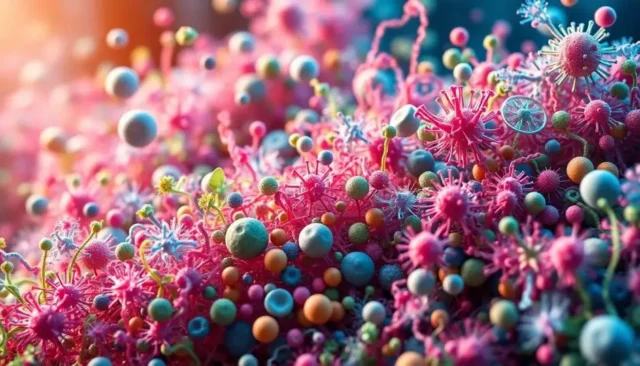Your gut doesn’t only digest food — it communicates with your brain! Scientists have found a major link between what you eat and how you feel mentally. This connection, known as the gut-brain axis, operates through several pathways that can impact your mood, cognition, and overall mental well-being.
It’s through this gut-brain connection that you can improve your nutrition and, in turn, have arrowing effects on your brain function and mental wellbeing. You are what you eat — and when you eat foods that help support a healthy gut, you also help support a healthy mind.
Older research has focused on the trillions of bacteria living in your digestive system as a driver in the production of chemicals that influence your brain. The good news is simple nutrition strategies can help optimize this connection.
Strategies such as including omega-3 fatty acids in your diet, consuming food that contains probiotics and limiting processed foods can all help support improved gut health. Such changes may be beneficial to mood, anxiety and overall mental well-being.
Understanding the Gut-Brain Connection
Your gut and brain communicate constantly through a complex network of signals. This two-way communication system, known as the gut-brain axis, influences digestive health and mental well-being.
The Role of Microbiota in Brain Function
The trillions of bacteria living in your gut — called the microbiota — play a key role in controlling brain function.
These tiny organisms are responsible for creating key chemicals that influence everything from how you think and feel. Gut microbes produce neurotransmitters, including serotonin, sometimes known as the “happy chemical.” More than 90% of your body’s serotonin is produced in the gut, rather than the brain!
These microbes also create GABA, a soothing neurotransmitter that promotes calming of anxiety. The gut-microbiome-brain axis depends on these bacterial buddies to work as it should. A diverse and healthy microbiome supports better cognitive function and mood regulation.
Key microbiota functions:
- Production of mood-regulating chemicals
- Support for brain development
- Protection against harmful inflammation
- Assistance with nutrient absorption that feeds the brain
Communication Pathways: Vagus Nerve and Neurotransmitters
The vagus nerve serves as the main highway between your gut and brain. This important nerve carries messages in both directions, letting your brain know what’s happening in your digestive system and vice versa.
When you eat, the vagus nerve sends signals about fullness and satisfaction. It also alerts the brain to potential threats like inflammation or infection in the gut.
Neurotransmitters act as chemical messengers in this system. Besides serotonin and GABA, other important ones include:
- Dopamine: The “reward” chemical that creates feelings of pleasure
- Acetylcholine: Helps with learning and memory
- Norepinephrine: Affects attention and responding to stress
The enteric nervous system, sometimes called your “second brain,” contains more than 100 million nerve cells lining your digestive tract. It works with the vagus nerve to coordinate this complex communication network.
Impact of Dysbiosis on Mental Well-Being
Dysbiosis—an imbalance in gut bacteria—can significantly affect mental health. When harmful bacteria outnumber beneficial ones, they produce toxins that can cross the blood-brain barrier and disrupt brain function.
This imbalance has been linked to several mental health conditions:
- Depression
- Anxiety
- Cognitive decline
- Mood disorders
- Stress sensitivity
Bacterial metabolites (chemicals produced by bacteria) influence brain health in both positive and negative ways. Harmful metabolites can trigger inflammation that reaches the brain, while beneficial ones support mental clarity and emotional stability.
Research shows that people with certain mental health conditions often have different gut bacteria compositions than those without such conditions. This suggests that improving gut health might help address some mental health challenges.
Brain Health and Gut Inflammation
Inflammation in the gut doesn’t stay there—it can travel throughout the body and affect the brain. This connection helps explain why digestive issues often coincide with brain fog, anxiety, or depression.
The blood-brain barrier normally protects the central nervous system from harmful substances. However, gut inflammation can make this barrier more permeable, allowing inflammatory compounds to reach the brain.
Chronic gut inflammation has been associated with:
- Reduced cognitive function
- Increased risk of neurodegenerative diseases
- Mood disturbances
- Changes in brain structure
Reducing inflammation through diet can support both gut and brain health. Foods rich in omega-3 fatty acids and antioxidants help fight inflammation, while highly processed foods may worsen it.
Prebiotics and probiotics play important roles in controlling inflammation. Prebiotics feed beneficial bacteria, while probiotics introduce new helpful microbes to the gut ecosystem.





